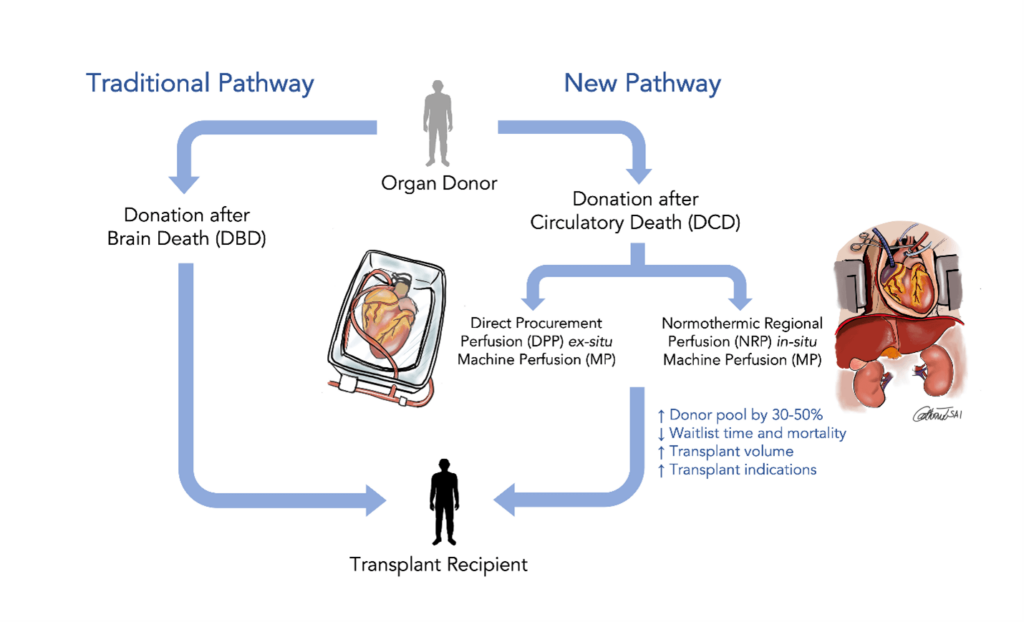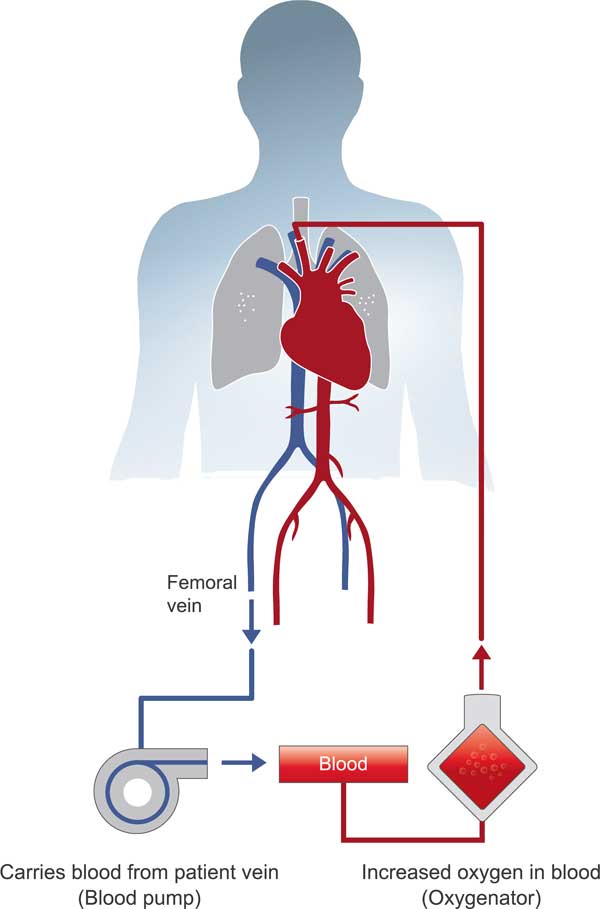Normothermic Regional Perfusion (NRP) Services
Unlock the Future of Life-Saving Transplants with Keystone PerfusionWe offer expert NRP Implementation for Next-Level Organ Preservation and Enhanced Recipient Outcomes.
Addressing the Organ Shortage Crisis with Normothermic Regional Perfusion (NRP)
The field of transplant medicine is rapidly advancing to combat the severe organ shortage crisis. With increasing congressional scrutiny and the demand for more efficient organ use, there’s a growing urgency to optimize the utilization of transplantable organs obtained from donors who have been declared dead by circulatory criteria.
Unlike organs obtained from living or brain-dead donors, those procured from donations after circulatory death (DCD) often face challenges such as hypoxic-ischemic injury. This injury occurs because DCD organs cannot be removed until the donor has been declared dead, typically in the United States after being pulseless for 5 minutes.

The Promise of Normothermic Regional Perfusion (NRP)
Normothermic Regional Perfusion (NRP) represents a groundbreaking approach to organ preservation and assessment. Unlike traditional “ex-vivo” perfusion, NRP utilizes advanced extracorporeal membrane oxygenation (ECMO) or cardiopulmonary bypass technology to restore circulation and perfuse DCD donor organs before recovery. The advantages of NRP are significant:
Reduced Warm Ischemia Time
NRP dramatically reduces warm ischemia time, a critical factor in organ transplant success.
Enhanced Organ Assessment
NRP enables a thorough assessment of DCD donor organs, ensuring optimal transplant outcomes.

Our Expertise and Comprehensive Solutions
Executing NRP requires technical expertise and a dedicated team. At Keystone Perfusion Services, we offer a comprehensive package of services to guarantee the success of NRP procedures:
Certified Clinical Perfusionists
Our experienced perfusionists are NRP experts, providing unmatched care and precision.
Cutting-Edge Equipment
We supply the latest heart-lung/ECMO equipment available to facilitate NRP procedures.
Disposable Supplies
All necessary disposables are provided to streamline the NRP process.
Pharmaceutical Support
Access to essential medications to support the perfusion process.
Education and Training
Keystone Perfusion Services offers tailored education and training to ensure your team’s proficiency in NRP procedures.
Point-of-Care Testing
We employ advanced point-of-care testing for real-time blood gas analysis, activated clotting time (ACT) monitoring, and lactate level assessment. This ensures that vital parameters are closely monitored and managed during NRP procedures, contributing to improved organ preservation.
Policy and Procedure Development
We assist in developing custom protocols and procedures to align with your institution’s needs.
Ethical Considerations and Transparency
NRP has sparked ethical discussions within the medical community due to the restoration of circulation in a deceased donor. We prioritize transparency and informed consent from donor families in every NRP procedure we undertake.
Dive Deeper into NRP
Explore the following resources to delve deeper into Normothermic Regional Perfusion (NRP) and related discussions:
What Our Clients Are Saying
FAQs
Let’s Discuss How Keystone Perfusion Services Can Assist in Advancing Your NRP Program.
NRP Form
"*" indicates required fields




